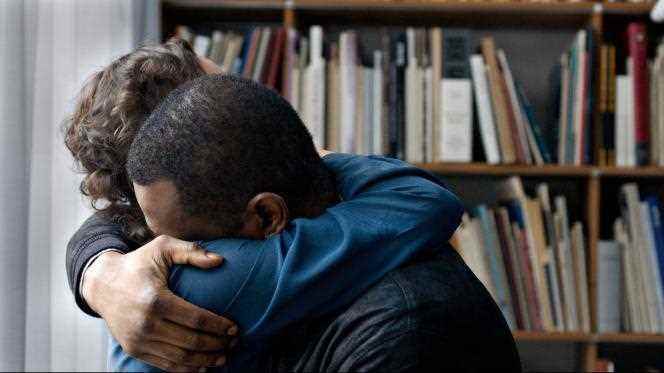THE OPINION OF THE “WORLD” – TO SEE
Monika (Ursula Strauss) is a gallery owner and curator in Frankfurt (Germany). Single, awaiting social promotion (she applied for the post of director of the Kunsthalle), she meets a Congolese, Joseph, known as “the Prince” (played by the rapper Passi), one evening, to whom she becomes attached. and with whom she will start an affair. The man, waiting for papers to reside in Germany, lives on mysterious activities and what we guess are various schemes, with the aim, he admits, of becoming very rich. Begins, then, a relationship made of eclipses during which Joseph disappears in an enigmatic way before returning to throw himself into the arms of the one who does not seem to have the strength to leave him.
The prince offers a story that has already been told a lot, that of interracial love relationships, a priori a “big topic” society to which the cinema has already provided many representations, of the Hollywood democratic vision expressed, for example, by Guess who’s coming to dinner… (1967), by Stanley Kramer, with a furious distanced melodrama brilliantly embodied All the others are called Ali (1974), by Rainer Werner Fassbinder. The great interest of Lisa Bierwirth’s film lies in the rather skilful way in which this “subject” feeds on unpublished data, skilfully adapted to a particular contemporary reality, that of globalization, the urban upper middle class and the perpetual transhumance of an unattached proletariat.
Naturalistic sequences
The bond between Monika and Joseph comes up against contradictions which are not those of individual or social racism. It is the particular nature of the bond which unites the two characters which concentrates all the interrogations of the spectator. A bond in which frustration mingles and opposes cynical exploitation. A mature and solitary woman, did Monika find in Joseph a remedy for her sentimental isolation and her professional frustrations? Eternal migrant, threatened by obscure creditors as well as by the authorities, has Joseph found, with Monika, a simple way to survive by taking advantage of the one to whom he tells improbable stories?
Lisa Bierwirth’s Film’s Flaws Are Also, Confusingly, Her Qualities
We can blame the film, built on long naturalistic sequences, for a certain imbalance. If the director describes with precision the environment in which her heroine moves, that of the urban bourgeoisie, tolerant and cultivated, she seems less precise on that of Joseph, a world of survival, trafficking, fortunes mirrored and immediately lost. , a secret and elusive world, precarious and quite dangerous. This (premeditated?) opacity attenuates the brutality of the relationships that seem to be established by someone who regularly flees his mistress to find her and use her without scruple.
You have 16.85% of this article left to read. The following is for subscribers only.
